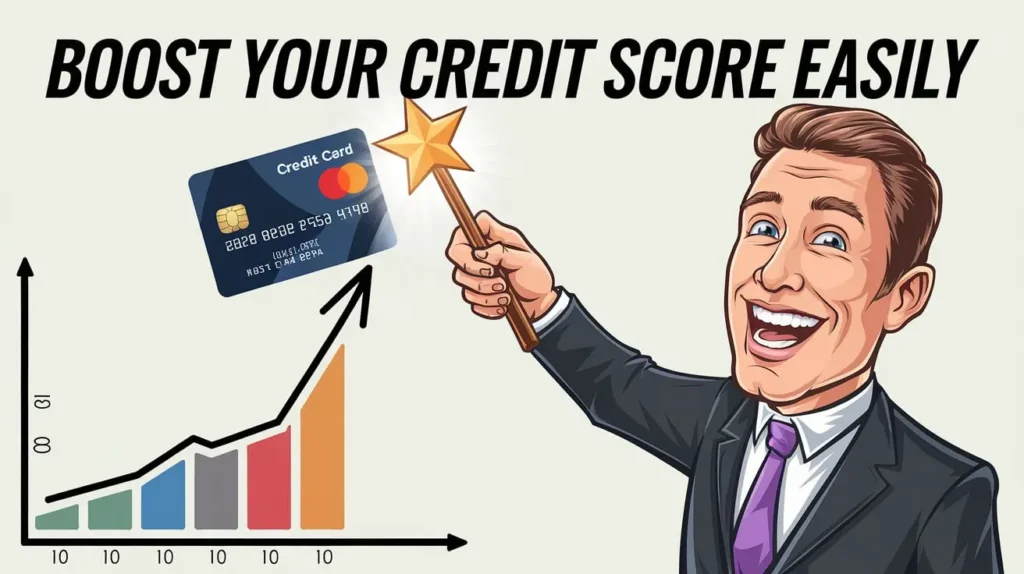In the constantly evolving world of Personal Finance, staying informed
is key to making the best decisions for your money.
Whether you’re just
starting out on your financial journey or are a seasoned investor, the right
books can provide valuable insights.
In this blog post, we’ve compiled a
comprehensive list of the best personal finance and investing books for 2024
that will guide you toward achieving financial freedom.
Whether your goals are
saving for retirement, understanding the stock market, or simply gaining
better control over your finances, there is something for everyone on this
list.
Top Personal Finance Books to Transform Your Financial Future
Reading about Personal Finance is an effective way to learn from
experts who have successfully navigated the complex world of finance.
These
authors offer real-world advice and strategies that can help you make better
decisions with your money.
Books are often the best source for deep dives into
specific topics, allowing you to gain the kind of understanding that can
significantly impact your financial future.
The books featured in this list
are well-researched, accessible, and provide actionable steps you can take
today.
Whether you want to change your mindset about money, learn practical investing
skills, or discover the habits of successful people, these books cover a wide
range of topics to enhance your financial literacy.
Taking the time to read
and apply the lessons from these books can not only help you achieve financial
independence but also transform your life for the better.
Quick Overview: Best Personal Finance Books for 2024
| Book Title | Author | Category |
Why You Should Read It |
|---|---|---|---|
| The Psychology of Money | Morgan Housel | Personal Finance | Learn how emotions and decisions affect your financial well-being. |
| Rich Dad Poor Dad | Robert Kiyosaki | Investing | A timeless classic that introduces key concepts for wealth building. |
| The Simple Path to Wealth | JL Collins | Retirement Planning | A practical guide to financial independence and simple investing. |
| Your Money or Your Life | Vicki Robin & Joe Dominguez | Financial Freedom | Transform your relationship with money to achieve a more fulfilling life. |
| The Intelligent Investor | Benjamin Graham | Value Investing | Understand fundamental investing strategies from one of the greatest minds in finance. |
1. Personal Finance Fundamentals: Start with the Basics
1.1 The Psychology of Money by Morgan Housel
If you’re new to Personal Finance, The Psychology of Money is an excellent starting point.
Housel delves into the often-overlooked psychological aspects of money, which are crucial to managing your finances effectively.
The book uses 19 short stories to illustrate how people think about wealth, greed, and happiness.
This book is particularly useful for beginners, as it emphasizes the importance of long-term thinking and the behavioral side of finance—skills essential for creating a stable financial future.
Housel’s writing style is approachable, making complex financial concepts easy to understand.
He explains how our personal histories, unique life experiences, and individual temperaments shape the way we perceive risk and make financial decisions.
This insight is invaluable for anyone looking to make better choices with their money, as it encourages readers to be more mindful of their financial habits and behaviors.
Secondary Keywords: money mindset, financial habits, wealth psychology.
1.2 Your Money or Your Life by Vicki Robin & Joe Dominguez
Robin and Dominguez’s book is a groundbreaking work in the field of [Personal Finance]. It teaches readers how to assess their relationship with money and how to save and invest to achieve financial independence.
This book is ideal for readers looking to transform their lifestyle by aligning their finances with their values.
The step-by-step nine-step program it offers is still relevant today, making it a must-read for those serious about financial freedom.
The book also includes helpful exercises that guide readers through the process of tracking expenses, calculating their true hourly wage, and understanding the long-term impact of their spending habits.
By shifting the focus from consumerism to financial well-being, Your Money or Your Life empowers readers to take control of their finances and live more intentional lives.
Secondary Keywords: financial independence, budget planning, money management.
2. Investing Essentials: The Best Books to Get Started
2.1 Rich Dad Poor Dad by Robert Kiyosaki
Rich Dad Poor Dad remains one of the best introductory books for those interested in investing. Kiyosaki shares lessons learned from two father figures—his own, and his best friend’s “rich dad”—providing contrasting perspectives on wealth, risk, and entrepreneurship.
The book emphasizes the importance of financial education and building assets to achieve long-term prosperity.
Kiyosaki’s storytelling makes complex financial concepts accessible, especially for those who are new to investing.
He emphasizes the importance of understanding the difference between assets and liabilities, which is a fundamental concept for anyone seeking to build wealth.
The book also touches on the importance of entrepreneurship and passive income streams, making it an inspiring read for aspiring investors.
Secondary Keywords: financial education, asset building, wealth creation.
2.2 The Simple Path to Wealth by JL Collins
JL Collins’ The Simple Path to Wealth is a must-read for those looking to simplify their investment strategy.
Collins advocates for investing in index funds and maintaining a hands-off approach to wealth-building. His easy-to-understand advice has helped many achieve financial independence without the complexity often associated with investing.
Collins originally wrote much of the material in this book as letters to his daughter, which gives the book a personal and relatable tone.
He breaks down the basics of investing, including how to handle market volatility, the importance of keeping investment costs low, and why it’s crucial to have an emergency fund.
The book’s simplicity and practical advice make it ideal for both beginners and those looking to reassess their financial strategies.
Secondary Keywords: index funds, retirement planning, passive investing.
3. Advanced Investing: Grow Your Wealth
3.1 The Intelligent Investor by Benjamin Graham
For readers ready to dive deeper into investing, The Intelligent Investor by Benjamin Graham is a timeless classic.
Graham, known as the “father of value investing,” shares his approach to analyzing stocks and constructing a diversified portfolio. Warren Buffett himself has praised this book as “the best book on investing ever written.”
Graham introduces the concept of “Mr. Market,” a fictional character who represents the stock market’s mood swings.
This concept helps readers understand how to take advantage of market irrationality. He also discusses the difference between investing and speculating, emphasizing a disciplined, long-term approach to building wealth.
This book is best suited for those who are ready to take a more active role in managing their investments.
Secondary Keywords: value investing, stock analysis, long-term growth.
3.2 Common Stocks and Uncommon Profits by Philip Fisher
Another excellent resource for advanced investors is Philip Fisher’s Common Stocks and Uncommon Profits.
Fisher’s insights on growth investing, analyzing companies’ management, and finding investment opportunities beyond traditional metrics have had a profound influence on legendary investors like Warren Buffett.
Fisher emphasizes the importance of understanding a company’s management and its capacity for innovation.
He provides a checklist of 15 points to consider when evaluating a company, including its research and development capabilities, sales effectiveness, and profit margins.
Fisher’s approach to investing focuses on identifying companies with substantial growth potential, making this book an essential read for those interested in growth stocks.
Secondary Keywords: growth stocks, company analysis, investment strategies.
4. Financial Freedom: Achieve Independence
4.1 Financial Freedom by Grant Sabatier
Grant Sabatier’s Financial Freedom explores how anyone can achieve financial independence in a surprisingly short amount of time.
Sabatier provides practical advice on saving, investing, and optimizing your career to maximize income.
The book includes tips on how to effectively leverage side hustles, cut unnecessary expenses, and strategically invest to fast-track your financial goals.
Sabatier shares his own journey from having less than $2 in his bank account to becoming financially independent within five years.
He emphasizes the importance of aggressive saving, effective investing, and maximizing income through side hustles.
The book is packed with actionable strategies, including how to negotiate higher salaries and create passive income streams, making it ideal for anyone serious about achieving financial freedom.
Secondary Keywords: financial independence, side hustles, early retirement.
4.2 The Millionaire Next Door by Thomas J. Stanley and William D. Danko
This book explores the habits of America’s wealthy and dispels many myths about what it means to be rich.
Stanley and Danko conducted extensive research and found that wealth often comes from diligent saving, wise spending, and investing over the long term.
The book is a great reminder that financial independence is more about discipline and less about flashy lifestyles.
The authors categorize millionaires based on their spending and saving habits, showing that most wealthy individuals live below their means and prioritize financial security over luxury.
This book provides valuable insights into how ordinary people can accumulate wealth by making smart financial choices consistently over time.
Secondary Keywords: frugality, millionaire habits, wealth building.
5. Money Mindset and Motivation: Transform How You Think About Money
5.1 Think and Grow Rich by Napoleon Hill
Originally published in 1937, Think and Grow Rich is still a popular book among aspiring entrepreneurs and those interested in Personal Finance.
Hill provides timeless insights on developing the right mindset for wealth-building, with key lessons on goal setting, perseverance, and positive thinking.
Hill interviewed some of the most successful people of his time, including Henry Ford and Thomas Edison, to uncover the secrets to their success.
The result is a blueprint for building wealth through focused thought and determined action. The book emphasizes the power of belief and how aligning your thoughts with your goals can lead to financial success.
Secondary Keywords: mindset, wealth creation, goal setting.
5.2 You Are a Badass at Making Money by Jen Sincero
Jen Sincero’s You Are a Badass at Making Money combines humor and actionable advice to help readers overcome financial fears and create a life they love.
Sincero’s approach is light-hearted yet effective, and her book encourages readers to push past self-imposed limitations and redefine their financial future.
Sincero shares personal stories of how she went from struggling financially to creating a successful business and living her dream life.
The book is filled with practical exercises that help readers identify and overcome limiting beliefs about money.
By changing their mindset, readers can open themselves up to new opportunities and build a more abundant financial life.
Secondary Keywords: financial empowerment, overcoming money fears, positive mindset.
Conclusion: Start Building Your Personal Finance Library Today
The journey to financial independence begins with knowledge. By reading these books, you will gain valuable insights into budgeting, investing, and managing your money more effectively.
Remember that the best way to improve your financial situation is to start learning and taking actionable steps today.
Pick a few books from this list that resonate with your current financial goals, and begin your journey toward a more secure financial future.
Each of these books provides a unique perspective on money management, from building the right mindset to practical investing tips.
The key is to not just read but to apply the lessons learned to your everyday life.
Financial independence is achievable with the right knowledge and the commitment to make lasting changes.
By expanding your Personal Finance library, you are equipping yourself with the tools needed to navigate your financial journey confidently.
Recommended Reading
Are you ready to take control of your finances? Which of these books will you be reading first? Let us know in the comments below!



